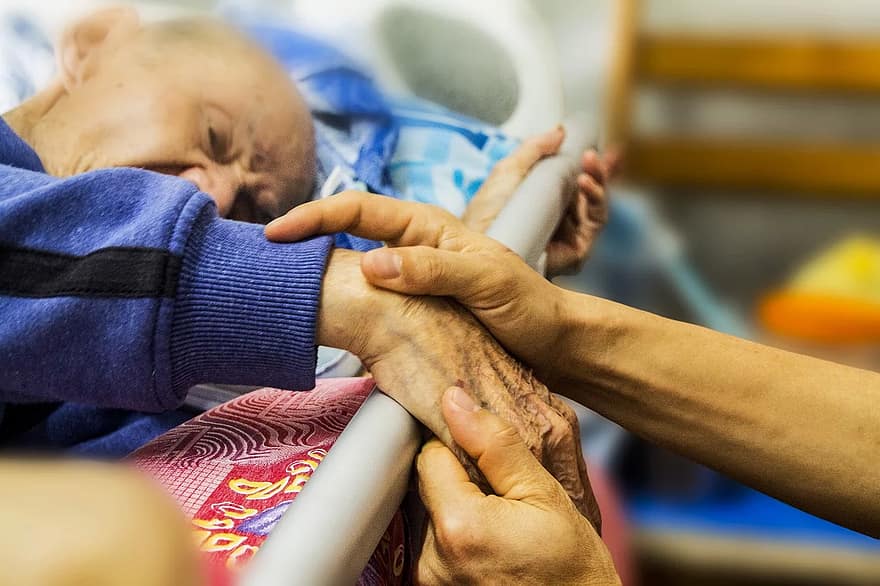The concept of ‘psychological personal protective equipment (PPE)’ – which involves self-care and resilience training, safe debriefing opportunities and realistic expectations – is just as important as physical PPE like masks and shields in the COVID-19 healthcare environment.
As Dr Jeanne Hardacre and Dr Alexander Margetts in the UK have pointed out, “No matter how large or well-equipped the hospital, without its workforce, it cannot save patients.
Just as we ‘don’, ‘doff’, and monitor our physical PPE, we need to check our and others’ ‘psychological PPE’.”
We need a similar concept in aged care. For both residents and staff, psychological PPE is crucial to maintain, protect, and optimise mental health and wellbeing, in both the short and long-term.
We have watched with sad hearts the stories of residents who are lonely, celebrating birthdays alone, divided from their loved ones, connecting through glass, or dying alone.
People living and working in aged care are part of our community; they contribute to the rich demographic of our society. They are our parents, grandparents, friends, neighbours, and the people who paved the way for our lifestyles today.
Aged care workers include nurses, personal care attendants, kitchen staff, laundry staff, maintenance and administration staff, and they are working tirelessly around the clock to protect residents, often when short staffed, and are willing to put themselves on the front line.
We need to prevent mass outbreaks in our aged care facilities. We also need to keep aged care staff safe – safe from infection, but also safe from the psychological effects of caring for people in the midst of a highly communicable global pandemic.
Wellbeing for the aged care workforce is key to prevent burnout, fatigue, and for workers to provide quality care, particularly with the additional stress and pressures they face in providing care during this pandemic.
These pressures include communicating, while wearing face masks and shields, with people who often have hearing impairments and rely on lip-reading, and people with cognitive impairments and dementia.
These pressure are on top of the lack of family assistance and support in lockdown, and the generalised (and normal) anxiety around COVID-19 and its high mortality rates in older people, as well as the anxiety about personal and family health.
We all have a responsibility to be part of the psychological PPE for care workers. They need our support and encouragement.
It is devastating to hear that these front line workers are being blamed for spreading the virus. Some are even afraid to wear their uniforms in public for fear of assault. Aged care workers are also being blamed by some family members for the government-mandated restrictions on visitors. This blame game needs to stop.
The aged care sector has come under criticism, with controversy and debate over topics like the availability and correct use of PPE, federal government versus state government responses, staffing, availability of paid pandemic leave, and the privatisation of the industry.
COVID-19 has brought long-standing problems in the sector into sharp relief, particularly regarding the workforce. Some workers are poorly paid, juggling multiple casual jobs and have little job security.
The industry does need reform. Many of the problems were there before the pandemic, and will likely be there after the pandemic.
For now, as Victoria is in the midst of dealing with rising numbers of COVID-19 infections, we call for a more solution-focused discourse. We need to direct our attention to address the pressing problem of keeping aged care residents and the aged care workforce as safe as possible, as soon as possible, rather than playing the blame game.
This will ensure that we are putting the residents first and foremost, and addressing their needs, rather than kicking the political football. If we must, we can do that later (constructively).
In Australia, evidence-based practice and policy is critically needed in this area, particularly in the implementation of staff training and psychological education, or psychoeducation.
To best support the aged care workforce in providing quality care, we need to normalise open discussion about the psychological effects of caring during a highly infectious pandemic, including targeted training sessions and psychoeducation.
This psychoeducation, could focus on factors contributing to anxiety, compassion fatigue, stress, and burnout, and teach strategies to enhance resilience and wellbeing in themselves, their colleagues, and their families.
Recommendations and resources like posters should be developed as a communication tool and as reminders throughout facilities.
We should fund and support initiatives like dedicated confidential hotlines for aged care workers, virtual peer-to-peer support, and workplace reform to create space and time for enhancing resilience, and for reflective practice, rather than reactive, rushed care practices focused on task completion.
The aged care workforce is working hard to ensure the safety of their residents. They are the most invested stakeholders.
Keeping the frontline staff safe, physically and psychologically, must be a top priority in this COVID-19 environment. Let’s offer our support, rather than criticism.
The article was republished at PEOPLE IN AGED CARE SECTOR NEED PSYCHOLOGICAL AS WELL AS PHYSICAL PROTECTION











More Stories
Houston scientists acclaimed for their patent-free COVID-19 vaccine
Detroit district approves vaccine mandate for school employees
Support and collaboration with health-care providers can help people make health decisions